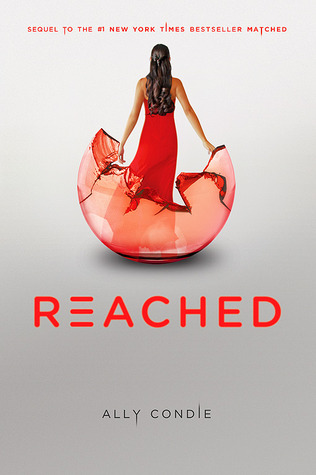Liz Braswell’s A Whole New World is such a waste of potential. As with any book that has more than one attractive cover–I particularly like the style of the reprint covers for the series–the contents being less attractive is a major let-down. But it’s also a waste of a fun idea. The series is called “Twisted Tales” to reflect the concept that each book is basically a Disney animated feature film book adaptation with a what-if plot twist. The twist for the first book, based on Aladdin, is that he never got the lamp.
I’m assuming that Jafar did get the lamp and his reign of terror simply took place sooner. I didn’t get that far. For a long time, I had better things to read, or higher priority books like ARCs. I did suffer through the saccharine prologue about Aladdin’s unrealistically sainted mother a couple of times. It holds hints of the book’s many, many failings, but I didn’t want to dump it based on that alone. Fans of Renaissance Disney have this weird inclination to imagine the dead mothers of protagonists as idealised women who are perfect the way that a poorly written Yamato Nadeshiko is perfect: flawless, meek, and selfless to the point of lacking even healthy self-interest. The idealised Disney mother, if she’s ever alive, is written in such a way that she is quite obviously doomed to die, probably beautifully. It’s kind of gross. Dehumanising a character and thinking it poetic.
One thing the prologue has going for it is that it’s original. It has pathetic, incredibly forced callouts to recognisable things in the Aladdin franchise (comprised in my view of the three movies and the animated series) like Rasoul and Aladdin’s mother decides to get him a pet. Because when you don’t have enough money to eat, a pet is a thing you want. But it’s still more like fan fiction and less like a straight up novelisation. After the prologue, the book becomes a novelisation.
A breathtakingly dreadful novelisation.
Although I can see where quoting the movie verbatim would be irritating to some readers, I would have preferred it. Some lines of dialogue sound like they were in the movie, but since I grew up watching it, I could correct the changed lines in my head. They weren’t as good as the original lines, nostalgia notwithstanding.
Action was streamlined to the point of being outright removed, and I felt more like I was being told about the movie by someone who had both barely watched it and had hated what they did watch. In the movie, the guards who chase Aladdin during the song One Jump are ugly bumblers, but they’re still effing ARMED and he’s running. This communicates to the audience that they are a threat.
Braswell chose to remove all tension from the chase and instead reduce it to the same adverb-heavy navel-gazing as every other part of the narrative.
He scooted around Rasoul and managed to duck past the rest of the guards as they grabbed at him ineptly. Ten of them weren’t worth one of Rasoul–thank goodness. He was the only one Aladdin needed to worry about–and he knew the streets almost as well as the boy did.
This is the only mention of the guards who are not Rasoul. All of Aladdin’s dialogue during the chase is broken up by heavy breathing and too much thinking. He gets injured, which did not happen in the movie and cannot be chalked up to the “twisted” what-if that the book is supposed to deliver.
At this point, I was fatigue-y and in a lot of pain, so I’d asked my husband to read to me so I could maybe fall asleep after a bit. But I couldn’t fall asleep when every few sentences I had to stop him to ask if the book actually said that or if he was bamming me. His disbelief was about as constant. Why is there an allusion to prostitution? Because there was a visual reference in the movie? That could come and go without comment because it was a visual reference. Written references are far more overt, and they have to be justified. The small moment of kindness when Aladdin gives his bread to the tinier orphans becomes this overwrought drama with waffling contradictions about how street rats treat each other. “Oh we look out for each other!” And then he thinks, “I know what it’s like to be picked on by the bigger kids who stole my food!” Which is it?? Honour among beggars/thieves or everyone for himself?
Then there is the research fail. It’s painful. If any research of Middle Eastern countries went into this book, it must have come from the back of a cereal box. Baklava! Turban! Effendi! Dates! If Abu hadn’t been in the movie, I’m sure the author would have felt it necessary to add a monkey on her own initiative. Braswell apparently has an anti-monarchy streak in this series, and it looks like woefully uneducated American revisionism, because this is so obviously not her culture. Aladdin made a random mental observation about the fat sultan playing with his toys instead of seeing to his people. …which… no. This was what ultimately drove both Hubby and me to just stop trying and DNF. He literally handed me the book and said, “Reading this is making me uncomfortable.”




